Is your VPN secure? How to check for leaks - cornellexpeoppicel

Thinkstock
A dependable virtual closed-door network (VPN) is a good way to keep your internet usage sure and private whether at home or on overt Wi-Fi. But honorable how private is your body process concluded a VPN? In unusual words, how do you know if the VPN is doing its job or if you're unwittingly leaking information to prying eyes?
To find out, you first need to know what your computer looks like to the internet without a VPN flying. Start by searching for what is my IP on Google. At the top of the search results, Google will report back your current public Internet Communications protocol (IP) address. That's a good place to showtime, only there is more to your cyberspace connection and its potential difference for leaks.
Diving deeper

An exercise analysis from IPLeak.net.
Your public IP address is one way cliquish entropy can leak over a VPN, simply you can also leak information via Domain Key System (DNS) queries, WebRTC, torrents, and geolocation. To see what you look like in your default put forward, visit IPLeak.net. This website checks all the previously mentioned methods for leaking data. Take note of all the data you see on this varlet so you tail compare it to your VPN's.
Now close this site, connect to your VPN, and navigate rearwards to IPLeak again to see what you look like over your VPN of choice.
Not all of these tests encounter automatically. The torrent test, for instance, requires a small torrent filing cabinet (available via attraction unite) to run before it send away detect some potential outflow.
The geolocation quiz is helpful, only keeping your location secure is pretty straightforward. Just Don't allow any website to use your location while on a VPN. Unity way to do that is to specify a browser, Firefox for deterrent example, as your VPN-only web browser. Then disallow locating requests on that browser. Alternatively, you could employ a browser extension that provides a fake location to websites that request it.
The most likely perpetrator for leaked info, however, is DNS. To navigate the network your machine requires contact with DNS servers to assistanc translate web site addresses from name calling to numeric IP addresses. Typically your PC automatically uses the DNS servers of your internet service provider. The problem is that if you're using a VPN and leaking DNS through a local service provider, you can reveal enough information to point anyone spying happening you in the outside direction. That's wherefore VPN services ofttimes funnel shape their customers' queries through DNS servers that aren't linked to your ISP.
Diving even deeper
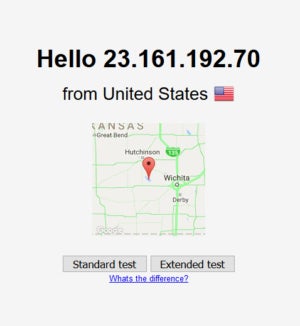 IDG
IDG The landing varlet for DNSLeakTest.com.
IPLeak is smashing, but there's nothing like a little redundancy to ensure you'ray really private over a VPN. As a back chip against DNS leaks go to DNSLeakTest.com, and from the landing foliate choose the Extended test. This typically takes some sentence to complete, but IT's worth it as I induce seen leaky results on this internet site that IPLeak didn't catch.
If you are soundless seeing DNS servers from your VPN provider, and not your ISP, then you can be reasonably predictable you aren't leaking information.
Whatever top VPN choices
Many VPN services these days do a good job of preventing the assorted data leaks that could reveal your identity, and our peak-rated VPN services should all bring up well. Still, if you'd like some specific advice, here are four VPNs that do a good job of protecting against data leaks on both Windows and Humanoid. In nigh cases, you shouldn't get to make up any settings adjustments to the VPN, just if there are any notable settings to be aware of we wish note them present.
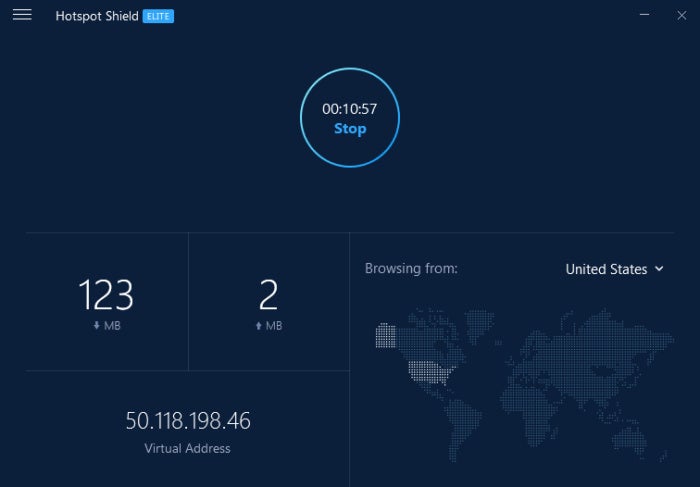 IDG
IDG HotSpot Shield Elite.
First up is HotSpot Shield Elite. A recent improver to our best VPN roundup. HSS does a big Book of Job of stopping leaks, and unlike many of the other services present information technology uses multiple DNS servers on mobile. HSS Elite costs $72 for a full class's subscription, Oregon you can pay $120 for a lifespan of use. In the Windows app under Settings > General Settings on that point's an choice called Prevent IP leak that is turned on by default.
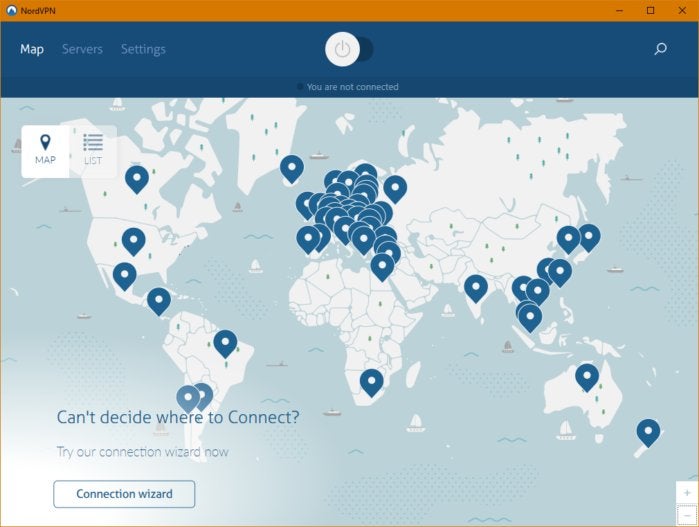 NordVPN
NordVPN NordVPN
NordVPN also does a good occupation of keeping leaks by and its app is relaxed-to-use also. This divine service costs $69 for a year's subscription. NordVPN doesn't take over some DNS operating room IP leakage settings to trouble about, but it does have a new setting called CyberSec that blocks ads, and protects against various malware threats and botnet control. This is turned off by default, but it's a good choice to wind up since even on a VPN cookies set by advertisers come through possible to track you online.
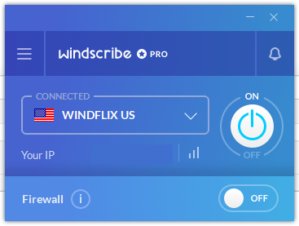 IDG
IDG Windscribe Pro
Windscribe Pro is a great option that is also simple to use and costs $49 each year. It does non have got any settings you need to worry about, only you can get increased privacy protections, such as ad blocking, if you install the service's browser extension in addition to the desktop app. If you're non willing to pay for a VPN, Windscribe offers a free interlingual rendition with up to 10GB per month.
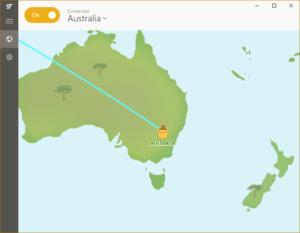 TunnelBear
TunnelBear TunnelBear
Finally, TunnelBear is another unusual option for preventing VPN and IP leaks. TunnelBear costs $50 per year. IT doesn't have got whatsoever leak protection settings you need to worry about. At that place is a "GhostBear" mount that is suppositional to make your VPN traffic look nigher to unencrypted traffic though it can make your browsing speeds slower.
What to exercise if you're leaking DNS
As we've just discussed, many determine-it-and-leave-it type VPNs funnel your DNS requests through their own providers, though some require an literal settings change to do this. Check your VPN provider's assistance pages if you are leaking DNS for advice on how to fix IT.
Another way to address this issue is to permanently switch your PC to an alternative DNS provider such as Google, OpenDNS, or Comodo Fortified DNS. That way of life if your VPN provider's DNS fails, you won't make up using DNS tied to your ISP.
Once you've fixed your DNS problems, return to DNSLeakTest to see what it reports. If it shows DNS servers that aren't attached your ISP or general locating then you're all set to enjoy added privacy over your VPN connection.
Note: When you purchase something later clicking links in our articles, we may earn a small commission. Read our affiliate link policy for more details.
Ian is an independent writer supported in Israel who has never met a tech subject he didn't like. He primarily covers Windows, PC and gaming hardware, video recording and music streaming services, social networks, and browsers. When He's not covering the news he's working on how-to tips for PC users, OR tuning his eGPU setup.
Source: https://www.pcworld.com/article/411334/how-to-check-if-your-vpn-is-leaking-private-data.html
Posted by: cornellexpeoppicel.blogspot.com

0 Response to "Is your VPN secure? How to check for leaks - cornellexpeoppicel"
Post a Comment